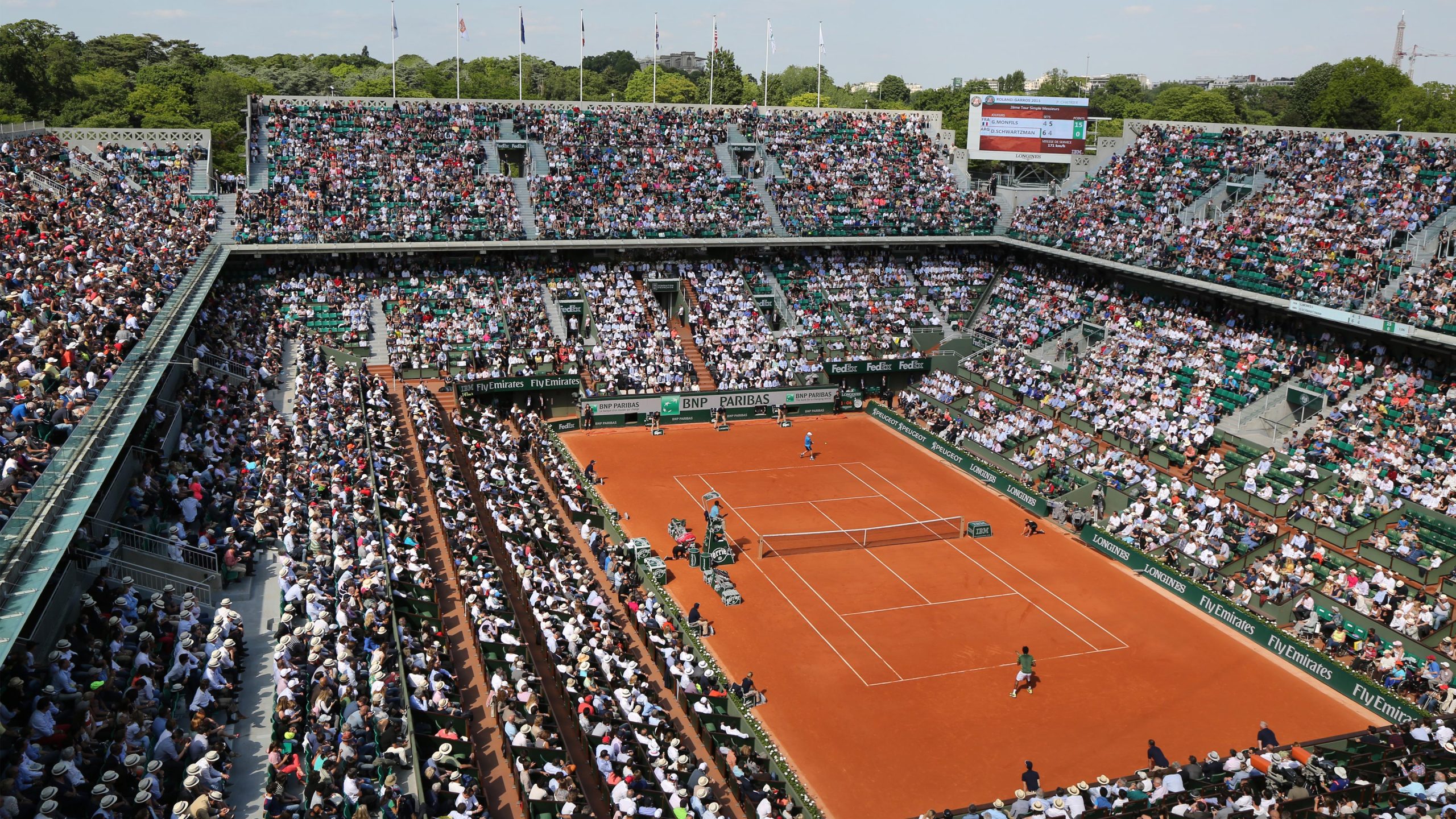Sports Tourism
Sports tourism is travelling to destinations for sports-related activities. It combines the excitement of sports with the thrill of travel.
Sports tourism is a rapidly growing industry that caters to travellers seeking unique experiences that incorporate their love for sports. It involves travelling to various destinations, including domestic and international locations, to participate or spectate in a wide range of sporting events.
Sports tourism can cover a vast range of sports from football to skiing, and from golf to cycling. Additionally, sports and tourism industries collaborate to generate more revenue for the host destinations. Sports tourism also fosters a sense of community among fans of particular sports and encourages participation in athletic pursuits. In recent years, the sports tourism industry has witnessed significant growth, with more people looking for adventurous and interactive ways to travel.

Credit: sportsfacilities.com
Types Of Sports Tourism
Sports tourism is a type of travel that involves visiting a destination primarily to participate in or watch sports events. There are various categories of sports tourism such as adventure sports, winter sports, water sports, and ecotourism which attract sports enthusiasts and travelers who are looking for unique experiences.
Sports tourism is a rapidly growing industry that involves traveling to different destinations to participate or watch sports activities. It’s a fun way for travelers to experience new cultures, meet new people, and learn about different sports. There are four different types of sports tourism, including Active Sports Tourism, Event Sports Tourism, Nostalgia Sports Tourism, and Attraction Sports Tourism. Let’s take a deeper look at each of these types.Active Sports Tourism
Active Sports Tourism involves traveling to different destinations to participate in various sports activities actively. Some popular sports activities include rock climbing, surfing, skiing, hiking, and cycling. This type of sports tourism is perfect for travelers who want to stay active while exploring new destinations.Event Sports Tourism
Event Sports Tourism is one of the most common types of sports tourism. It involves traveling to different destinations to watch sporting events such as the Olympics, World Cup, Super Bowl, and Wimbledon. This type of sports tourism is perfect for sports enthusiasts who want to witness live sports events and cheer for their favorite teams.Nostalgia Sports Tourism
Nostalgia Sports Tourism is all about reliving past sports experiences. It involves traveling to different destinations to revisit historical sports moments, such as visiting the Yankee Stadium or the Wembley Stadium. This type of sports tourism is perfect for sports fans who want to relive their past sports experiences and bring back some good old memories.Attraction Sports Tourism
Attraction Sports Tourism is all about visiting sports-related attractions and museums. This type of sports tourism is perfect for travelers who want to learn about the history of sports and explore the evolution of different sports over time. Some popular sports attractions include the Basketball Hall of Fame, the Cricket Museum, and the Baseball Heritage Museum. In conclusion, Sports Tourism is emerging as an exciting niche of tourism that is gaining traction worldwide. Understanding different types of sports tourism is crucial to find which best aligns with your interest. These travel types provide an opportunity to explore different destinations while encouraging an active lifestyle. The above-listed types of sports tourism are excellent for people with a penchant for sports and make it an excellent way to experience adventure and lifestyle in new lands.
Credit: www.linkedin.com
Benefits Of Sports Tourism
Sports tourism is a type of travel that revolves around sports events or activities. Benefits of sports tourism include economic growth, promoting destination, cultural exchange, and enhancing personal health and well-being. Sports tourism is gaining popularity globally due to its potential to attract travelers seeking unique, active experiences.
Sports tourism is a form of travel that combines various sporting activities with leisure and cultural activities. It is an exciting way to explore new places, meet new people, and experience different cultures. Sports tourism has gained immense popularity over the years due to its numerous benefits. In this section, we will be discussing the economic, social, and cultural benefits of sports tourism.Economic Benefits
Sports tourism can have a significant impact on the economy of a destination. It can generate revenue through various channels such as ticket sales, accommodation, transportation, and food and beverage services. Sporting events can attract a lot of people from different parts of the world, thereby boosting the local economy. The revenue generated from sports tourism can be used towards the development of infrastructure, creating job opportunities, and supporting local businesses.Social Benefits
Sports tourism can have a positive impact on the social fabric of a community. It can bring people from different cultures and backgrounds together, promoting social interaction and understanding. Sporting events can create a sense of community and belonging, fostering a spirit of camaraderie among people. Sports tourism can also promote healthy living, inspiring people to lead an active lifestyle.Cultural Benefits
Sports tourism can help preserve and promote the cultural heritage of a destination. Sporting events can showcase traditional sports, cultural rituals, and practices. This can help preserve the identity of a culture and promote it to a wider audience. Sports tourism can also expose tourists to different cultures, inspiring them to learn more about the history, art, and traditions of a place. In conclusion, sports tourism can have a significant impact on the economy, society, and culture of a destination. It can generate revenue, promote social interaction and understanding, and preserve cultural heritage.Factors That Drive Sports Tourism
Sports tourism has become a growing trend as enthusiasts travel to watch or participate in events, competitions and attractions. Factors that attract sports tourism include high-quality facilities, location, natural scenery, accommodation options, social experiences and unique cultural events, as well as the opportunity to explore a destination beyond sports.
Factors that Drive Sports Tourism Sports tourism is a thriving and fast-growing industry that has become increasingly popular in recent years. According to recent statistics, the sports tourism industry is growing at a rate of 14% per year, and by 2020, it is estimated to be worth over USD 34 billion. Sports tourism involves traveling to destinations to watch or participate in sporting events, and this can include anything from attending local sports events to traveling overseas to watch your favorite team play. There are numerous factors that contribute to the growth of sports tourism, including sports facilities, promotion of sporting events, access and infrastructure, accommodation and hospitality, marketing, and public relations.Sports Facilities
The quality and availability of sports facilities are essential factors that drive sports tourism. Well-maintained fields, arenas, and stadiums are the backbone of any sporting event, and modern sports facilities with all the amenities and advanced technology is a huge attraction for sports fans. Many sports enthusiasts travel across the globe to view iconic sports facilities like Wembley Stadium, Camp Nou, and the All-England Lawn Tennis Club.Promotion Of Sporting Events
Efficient promotion of sporting events plays a vital role in attracting fans from all around the world. A successful campaign might include TV coverage, promotion, and advertising on social media platforms, and other digital channels. Of course, it is crucial to keep costs within a reasonable budget and make sure that promotional materials are engaging.Access And Infrastructure
Easy access to sporting events via modern infrastructure is necessary for the success of sports tourism. Fans want hassle-free travel options, which is why governments and tourist companies work to develop infrastructure that simplifies the fan’s travel to and from the sporting events. Airports, highways, and railways are essential components of any sports tourism destination, and their absence can adversely affect tourism.Accommodation And Hospitality
Good accommodation options and hospitality services are important in ensuring a successful sports tourism industry. Fans want to stay in comfortable hotels or lodges, resorts, and get first class assistance from experienced service personnel. The more comfortable and desirable the accommodation experience is, the more likely it is that fans will return for another event.Marketing And Public Relations
Marketing and public relations play a significant role in the growth of the sports tourism industry. Through informative and engaging content, this method provides essential information about the sporting events, the destination, and the available tourism infrastructure. A consortium of tourism boards, travel companies, and sporting organizations can also make use of endorsements to promote upcoming events and attract more fans. Conclusion The sports tourism industry is all set to flourish in the coming years due to many factors like Sports Facilities, Promotion of Sporting Events, Access and Infrastructure, Accommodation and Hospitality, Marketing and Public Relations. The sporting industry is one of the fastest-growing industries globally, and with the help of concerted efforts from stakeholders across the spectrum, this growth will undoubtedly continue into the future.Challenges To Sports Tourism
Sports tourism is a type of travel that involves participating in or observing various sports events while exploring new destinations. However, this industry still faces several challenges, including security concerns, high costs, and lack of infrastructure and facilities in some areas.
Sports tourism, the practice of traveling to watch or participate in sports events, has gained immense popularity over the years. However, this growing trend is not without its challenges. Here, we look at some of the significant hurdles that must be overcome to make sports tourism a sustainable and responsible industry.Environmental Impact
One of the critical challenges of sports tourism is environmental impact. Sports events attract a large number of spectators, and this can lead to significant damage to the environment, particularly in fragile ecosystems. For instance, an increase in air pollution, littering, and damage to natural habitats are some of the common problems caused by tourism. In addition, the construction of sports infrastructure can also have a significant environmental impact.Seasonality And Weather
Seasonality and weather conditions are also significant obstacles to sports tourism. Certain climate conditions can limit the number of visitors to sports events, which, in turn, affects tourism revenues. For instance, the winter season can be a deterrent for outdoor sports events in some countries because of extreme weather conditions. On the other hand, the summer season can be too intense for outdoor sports activities, such as running or hiking, in some regions.Crowd Management And Security
Sports events can attract a large number of people, and ensuring the safety and security of both visitors and locals can be a significant challenge. Crowd management and security measures must be in place to avoid overcrowding, to ensure traffic flow and security, and to respond quickly to any emergencies. The lack of appropriate safety measures can lead to accidents, injuries, or even fatalities, which can harm the reputation of the sports tourism industry.Conclusion
Sports tourism has the potential to bring substantial economic benefits to regions. However, the industry must recognize and address the various challenges it faces to make it more sustainable and responsible. Appropriate planning, infrastructure development, and measures to mitigate environmental, safety and security risks can help ensure that sports tourism is a successful and responsible industry.
Credit: brand.mt.gov
Frequently Asked Questions On What Is Sports Tourism
What Means Sport Tourism?
Sport tourism refers to travel that involves participation in or observation of sports events and activities. It can include visits to stadiums, arenas, and other sports venues, as well as outdoor adventures like hiking and skiing. The goal of sport tourism is to combine travel with physical activity, cultural experiences, and leisure time.
What Is The Value Of Sport Tourism?
Sport tourism is valuable because it generates economic growth, creates jobs, and promotes local culture. Additionally, it boosts the hospitality and tourism industry, helps improve infrastructure, and enhances community engagement and well-being. Overall, sport tourism creates numerous social, cultural, and economic benefits for both the visitors and the host communities.
What Is Youth Sports Tourism?
Youth sports tourism involves travel for participants to attend and compete in organized sports events. This can include both individual and team competitions, and can take place locally, nationally or internationally. It is a growing industry that provides numerous economic benefits to host destinations.
Conclusion
In brief, sports tourism is all about traveling to experience sports and related activities in different places. It is an excellent opportunity for travelers to explore new destinations and enjoy their favorite sports in gorgeous settings. Sports tourism creates a significant economic impact on the local communities, generating revenue and creating jobs.
People who enjoy sports are the target audience for sports tourism, and it is an excellent way for them to combine their passion with leisure travel. So, if you’re a fan of sports, pack your bags and embark on a sports tourism journey that you’ll cherish forever.





